Corsica Travel Guide: Everything You Need To Know
Holidays in Corsica offer classic Mediterranean pleasures, including exceptional food, incredible beaches, a reliably sunny climate, and a rich history.
Corsica's unique selling point is its magnificent mountainous central area, famed for the epic 180 km GR20 hiking trail.
Such is Corsica's natural beauty, one might wonder why the island's most famous son - Napoleon Bonaparte - was so interested in visiting other lands.
Like Napoleon, Corsica itself is something of an enigma: ceded to France by the Genoese Republic in the late 18th century, the island retains elements of its Italian past - in the street names, and in the abundant ice cream and pizza parlours.
The Genoese cessation is a key element in the history of Corsica (1768), as was the birth of 'Old Boney' - just one year later.
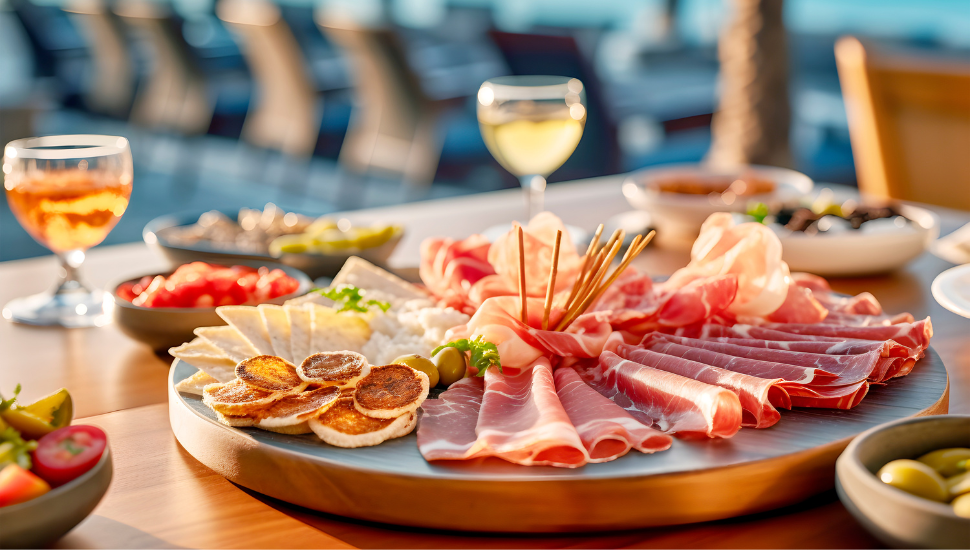
Corsican food
The proximity of Sardinia (about four times the size of Corsica’s 8,722 km²) - which is part of Italy - has ensured the continuity of this unique French-Italian amalgam, particularly when it comes to cuisine.
Food is central to Corsica's way of life.
Many island specialties are of the meaty variety: prisuttu is a cured ham salted with sea salt; figatellu, is a u-shaped liver-and-pork sausage; and coppa, is a traditional pork loin cold cut. These three examples can be found on the mainlands of both France and Italy - albeit in slightly different forms.
Wild boar casserole, meanwhile, has its roots in Sardinia and Tuscany.
Vegetarians have fewer options away from tourist restaurants. Notable exceptions are strozzapreti, comprising Swiss chard and brocciu dumplings in a roasted red pepper sauce; and the delicious chestnut tart.
Whatever your dietary preferences, you'll find that food is foundational to holidays in Corsica.
Corsican wine
Corsican wine, too, is something to be savoured when visiting Corsica. Patrimonio wine, for instance, comes in red, white and rose forms, and is made on the north of the island using Niellucciu and Vermentino grape varieties.
If wine is your thing, you can join a wine tour taking in some of the nine origin-approved vineyards.
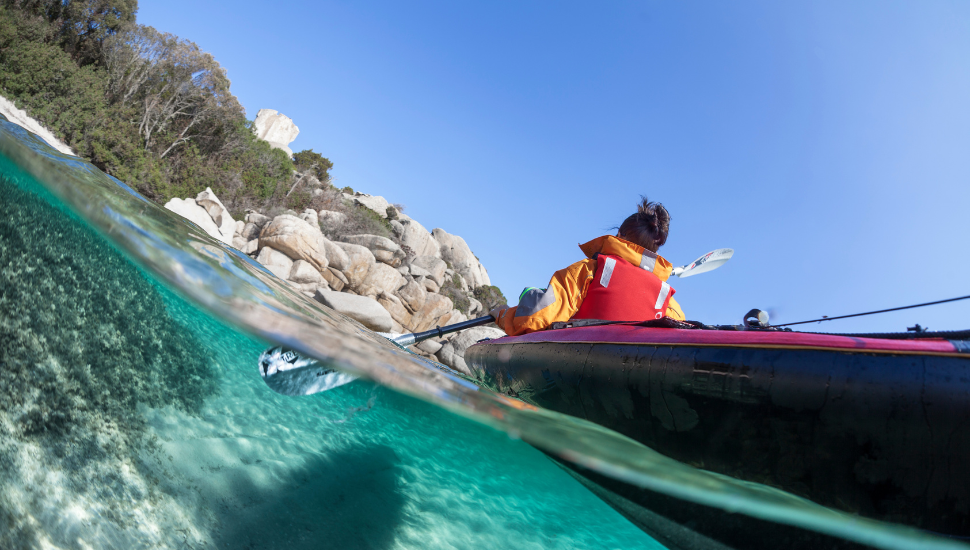
Watersports
It's no surprise that watersports play a big part in this island's tourism scene. Choose snorkelling, scuba diving - or plain old-fashioned swimming (best enjoyed from May until October).
It's also one of the best parts of France to enjoy sea kayaking, thanks to the island's craggy, indented coastline.
Among the most rewarding diving and snorkelling sites are La Revellata, on the edge of the Scandola Nature Reserve, and Palombaggia Beach to the island's southeast.
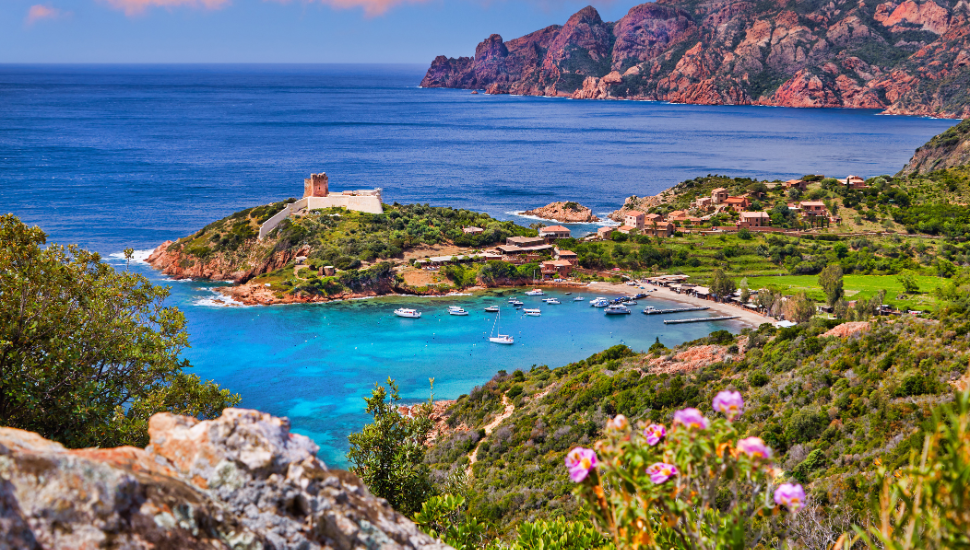
Scandola Nature Reserve
UNESCO-listed Scandola Nature Reserve covers 20 square km on the island's west coast. Half of its area is land, the other half sea.
Daily boat excursions from Calvi and Ajaccio take in the dramatic rocky coastline.
Bastia's old port
Quaint yet dramatic, Bastia's old port is home to the island's main ferry terminal, with connections to both France and Italy.
Pull up a chair in a streetside cafe, admire the historic architecture, and enjoy a little people watching.
It's one of the best places on the island to enjoy that famous laidback Mediterranean lifestyle.
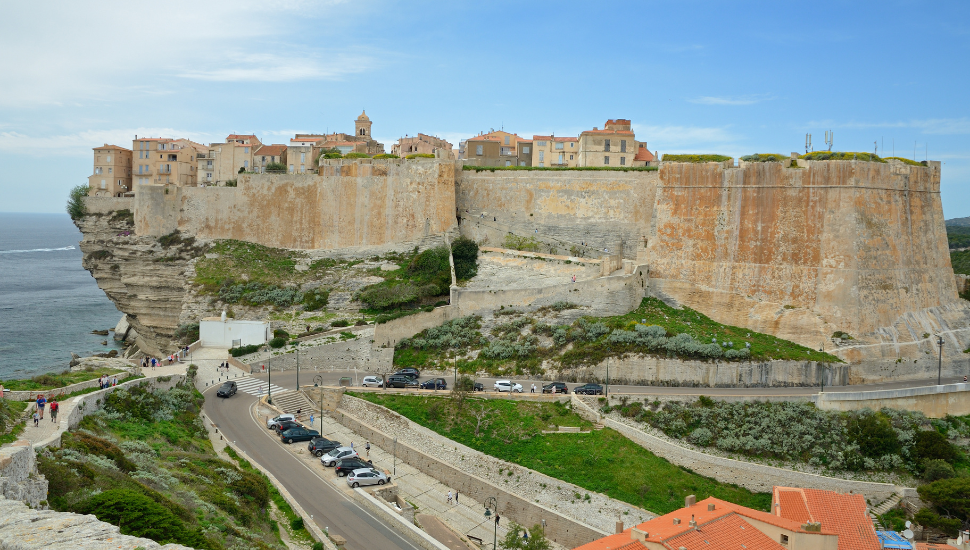
Bonifacio Citadel
Stroll the labyrinthine alleys of the 9th century Bonifacio Citadel, and ascend the paved steps of montée du Rastello and montée St-Roch to the enigmatic Porte de Gênes - the citadels' old gateway (complete with drawbridge).
Just inside, enjoy fabulous views from the Bastion de l’Étendard, which features a small but absorbing museum.
As you wander the old streets you pass under a number of arched aqueducts, built to fill the citadel's communal cistern.
Reaching the lofty citadel is quite demanding - unless you hop on the little train (every 30 minutes, 6 euros return).
Bavella Needles (Aiguilles de Bavella)
These rocky spikes of red granite overlook the pretty Bavella hills. Reaching them requires a demanding hike through pristine pine forests.
The GR20 - Corsica's most famous hiking trail - passes to the south of the Bavella Hills.
The highest peak is 1218m, and while the massif is not the island's largest, it is its most popular - thanks to the breathtaking silhouette of the needles themselves.
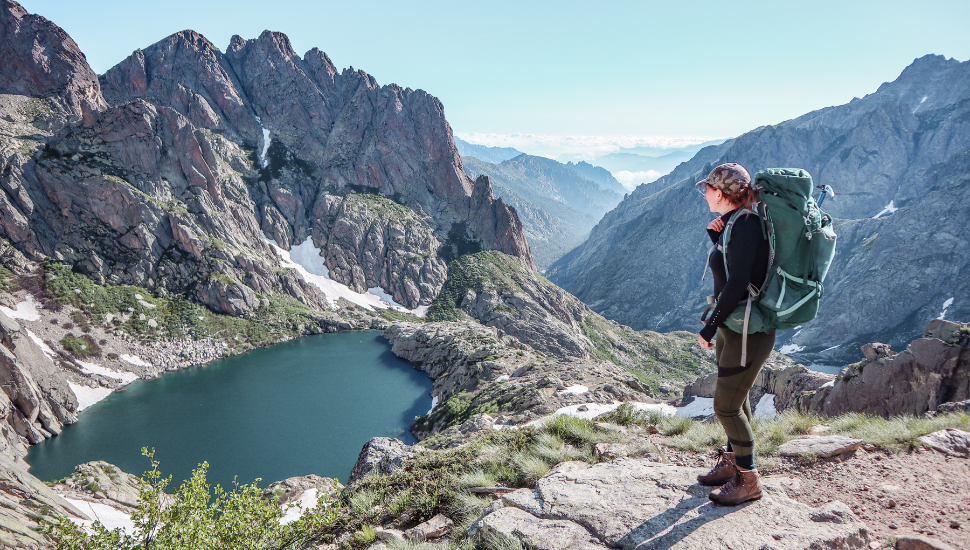
The GR20 hiking trail
If Bavella gives you a taste for hiking, challenge yourself to Corsica's legendary GR20, cutting diagonally across the island from Calenzana in the Northwest, to Conquer in the southeast. Its full length is actually 180km - and as such is considered one of Europe's most demanding hiking routes.
If you decide to hike the entire trail, you'll need around 15 days.
16 (very) basic mountain huts (refuges) line the route, where you can bunk down with other hikers for around 10 euros a night. Better equipped, privately run dormitories are also available - but these cost more. You can also bring a tent, but you can only camp in designated areas near the official mountain huts.
Le Petit Sperone Beach
If you need somewhere to rest your weary feet after the GR20, you won’t find a better spot than Le Petit Sperone - an unspoilt white sandy beach lapped by turquoise waters.
Reaching it does involve a 15-minute walk from the car park, but what's a few more blisters after the GR20?
If this diminutive patch of sand is a little too busy for your liking, keep going south until you reach le Petit's big brother, Grande Spirone.
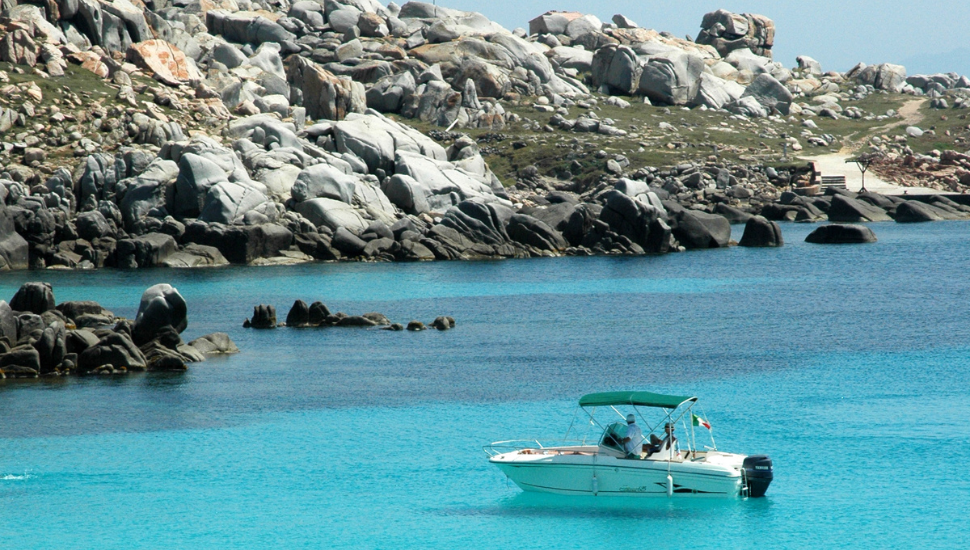
Lavezzi Archipelago
These granite islands, located 4km off the southeastern coast, offer yet more snorkelling enjoyment thanks to their many splendid reefs. You can reach them on one of the regular boats from Bonifacio.
On Lavezzi there's also a popular hiking trail.
How to get to Corsica?
For Britons, the easiest way to reach Corsica is by air.
Weekly direct flights from UK airports fly into Bastia and Ajaccio - the island's largest towns and home to about half of the population.
Flying to Corsica from the UK takes around 2h 20.
There are also around 30 crossings per day from mainland France, including from Toulon and Nice.
Additionally, there are sea connections from Italy's mainland, and of course Sardinia, just to the south.
Get a Quote